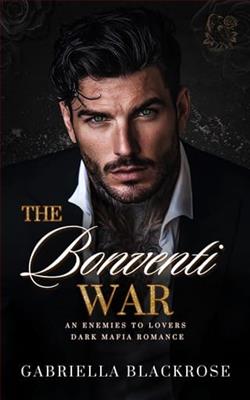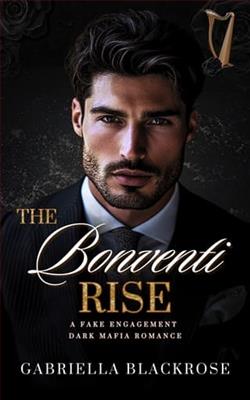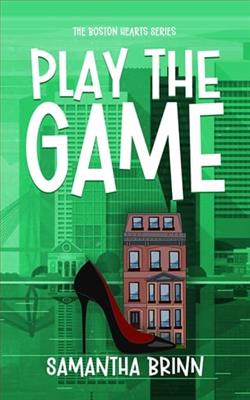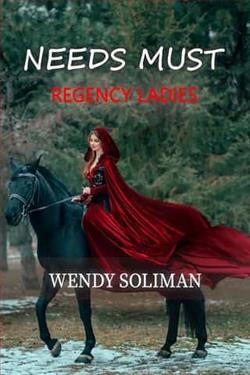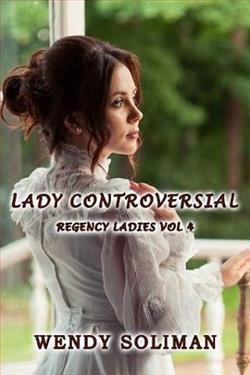Page 28 of Darcy in Hollywood
“Maybe I could make a donation to the shelter.” Darcy heard an edge of desperation in his voice.
“The cast is already giving money to the shelter; you can add to it. But mentoring a kid gives him or her something else: a unique experience, a lifelong memory, inspiration.” She leaned forward as excitement created a warm glow on her face. “You could change someone’s life.”
I change people’s lives by being a movie star, and I have the fan mail to prove it. But he couldn’t bring himself to say something so self-aggrandizing to Elizabeth. “Mentoring just isn’t my thing. I’d be an utter failure.”
Her skeptical expression suggested she didn’t buy that for a minute, which was a shame because it was the truth.
Maybe a different tack would work. “I guess it’s possible some teen might find talking to me enlightening, but the chances are far greater that they’re after a selfie so they can hashtag my name, or they want something I’ll autograph so they can sell it on the internet.”
Elizabeth drew back from him. “Cynical much?”
He shrugged. “Just a realist.”
She gave him a sidelong glance. “I don’t get you. Every day you’re playing Eric Thorne, a guy who believes in the innate goodness of people and nearly kills himself to save someone’s life. What is that your character says? ‘I can’t look away from her. Everyone else has looked away. I’m the only one looking at her. I’m the only one who can watch out for her and people like her.’”
“Those are just lines in a script, words some screenwriter thought up. They’re not relevant.”
She blinked. “You don’t believe there’s any truth to them?”
Was she for real? “Nobody does, really. If we cared about other people the way that script says, then the world wouldn’t be such a crappy place. But we put lines like that into movies because it makes everyone feel better. It makes us appear to care. But nobody believes it. Not really.”
Elizabeth’s mouth hung open. Okay, maybe he had said more than he intended. But he was just saying what everyone was thinking.
“Wow,” Elizabeth said slowly. “That might be the most jaded thing I have ever heard.”
How should he respond to that? Thank you?
She stared at him like he was a particularly disgusting bug she’d found in an insect exhibit. He had the strangest feeling she had expected more from him, and he’d disappointed her. But that was absurd. He’d never claimed to be anything else. He’d never asked to be put on a pedestal.
She gulped from her wineglass. “I don’t understand you. You grew up in a mansion with servants. You have more money than you can spend in your lifetime. And women fall at your feet every time you go outside. Where do you get off calling the world a crappy place?”
Suddenly anger blazed through his veins. “Don’t assume that you know me or anything about my childhood.” He jabbed his finger at her. “Just because you read about it on IMDB doesn’t mean you know the first thing about how I grew up.”
Her eyes widened. “What do you mean?”
He should have stopped; he’d made his point. But for some reason he wanted her to know more. “My mom didn’t want to be a mom, she wanted to be a movie star, and my dad was busy drinking himself to the bottom of every bottle. Maybe at one point they loved each other, but by the time I can remember anything, they were l
iving in different wings of the house. For my first ten years I was raised by an Armenian nanny who caned me as punishment.” It wasn’t until the nanny started hurting his sister that Darcy had the courage to tell his parents.
Elizabeth inhaled sharply. “That sucks. I’m sorry.”
Darcy averted his eyes and rubbed his forehead. “God, I’ve had too much to drink.” How had one scotch loosened his tongue that much? All right, maybe it had been two. “I can’t believe I told you all of that.”
“I won’t say anything to anyone,” she said softly.
He had no reason to believe her, but he did. Still, he hated the pity he saw in her eyes and averted his gaze to the gyrating bodies on the dance floor. “You’re not wrong that I’ve had a privileged existence, and money definitely…makes it easier. I bought a car so I could get out of the house. I started a film career so I could have my own money. I assembled a team of professionals—agents, managers, servants—to take care of me. I don’t want your sympathy; I just want you to understand that I come by my craptastic world view honestly.”
Immobile, she stared at him for a long moment. “Yeah, I’ll give you that.” She glanced down at her fingers picking off the label of her beer bottle. “You know, at the True Colors shelter, there’s probably a kid who was whipped by a…well, a babysitter. And who had a neglectful mom and an alcoholic dad. And when he or she came out to their parents, they were thrown out of their house, or maybe they ran away to avoid the beatings. And they wandered the streets of the city until they found True Colors.”
Darcy’s stomach rolled queasily. He just told Elizabeth that his fortune had allowed him to survive his parents. What was it like for the kids who didn’t have money?
“That’s what I like about In the Shadows,” she continued. “It helps makes those kids visible.”
Darcy felt about two inches tall. How could he be so cynical—and proud of his cynicism—in the face of such sincerity? Maybe what she was doing was a drop in the bucket, but at least she was doing something. By contrast, Darcy got paid way too much money to become the object of people’s fantasies. He gave money to charity, sure. But he wasn’t doing anything.
Was that how Elizabeth saw him? The rich, famous, powerful man who couldn’t spare the time to help one homeless teen. He hated the thought that anything would diminish him in her eyes. “Elizabeth—”
She gave a self-conscious laugh, staring at the people laughing and flirting on the dance floor. “This conversation has gotten way too deep for a party.”








